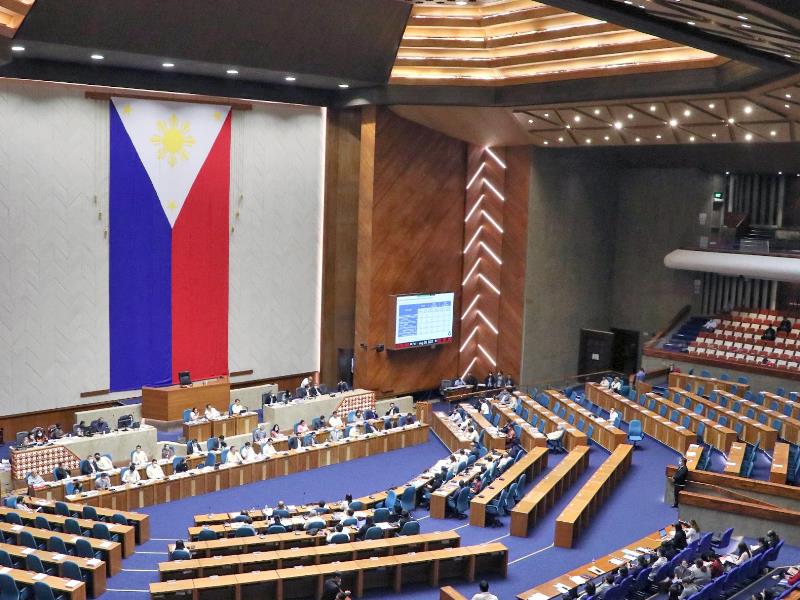
TWO hundred seventy six affirmative and 0 negative without abstention, the House of Representatives on Monday passed on third and final reading a bill defining the new crime of tax racketeering and imposing heavy penalties on offenders.
Speaker Ferdinand Martin G. Romualdez said House Bill 8144 aims to update the Tax Code “to deter schemes that defraud the government of billions of pesos in taxes that are the lifeblood of the nation and which could otherwise be used for the benefit of our people.”
“These schemes are cleverly used by syndicates and bogus businesses. They may not be covered by the definition of tax evasion, which the tax law penalizes,” Romualdez said.
“We have to plug loopholes in the law to arrest the hemorrhage of tax revenue that should accrue to government coffers, instead of going to the pockets of a few criminally-minded individuals,” he said.
According to House Committee on Ways and Means Chairman Joey Sarte Salceda, up to P100 billion in tax revenue is lost every year to tax evasion and tax racketeering activities involving the use of fake receipts and similar documents.
In March 2023 alone, the Bureau of Internal Revenue announced the filing of charges for evasion of taxes worth P25.5 billion against corporations using fictitious receipts.
HB 8144 defines tax racketeering as a crime perpetrated by “any person who engages in any coordinated scheme or operation to evade or defeat any tax imposed under this Code through the fraudulent use of receipts, returns, and other records, with a minimum amount of P10 million in taxes evaded.”
In addition to other penalties provided by law, the offender shall suffer imprisonment of 17 years to 20 years. Conviction or acquittal would not be a bar to the filing of a civil suit for the collection of taxes.
If the violator is a corporation, nongovernment organization, association, cooperative or single proprietorship, the penalty shall be imposed on its officers or employees and individuals without whose participation the violation could not have been committed.
Accomplices or persons who cooperate in the commission of the offense shall, in addition to other penalties provided by law, suffer imprisonment of 10 years to 17 years.
Persons, who, having knowledge of tax racketeering, take part subsequent to its commission, including profiting from it, shall suffer imprisonment of six years to 10 years.
Any public officer who aids and abets the commission of tax racketeering shall face perpetual disqualification from public office.
The bill also increases the penalties on any person who “willfully attempts in any manner to evade or defeat any tax imposed under this Code, of knowingly distributes, acquires, uses or aids in the use of unauthorized, fake or falsified revenue official receipts, sales invoices, commercial invoices, letters of authority, tax debit memoranda and other accountable forms.”
Such a person would face a fine of P5 million to P10 million (up from P50,000 to P100,000 under the present law) and imprisonment of six years to 10 years (increased from two years but not more than six years).
If the offender is a certified public accountant, his professional license shall be revoked upon conviction. If he is a foreigner, he shall be immediately deported after serving his sentence.
Image credits: House of Representatives/Facebook
